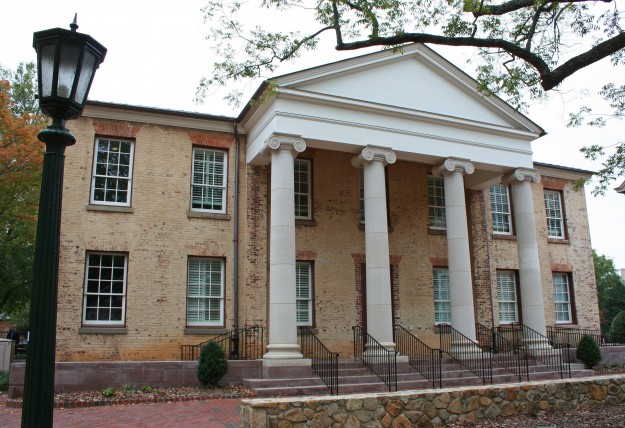UNC came out above average across the board in the newly released federal data grading colleges across the country.
On average, college graduates earn $1 million more over their lifetime than those who only completed high school.
But with the cost of higher education continuing to rise, the cost versus earning averages for college graduates have caused some to wonder if it’s worth it to continue their education.
New data released by the US Department of Education is aimed at helping students make the best decision possible when choosing a school, according to Steve Farmer – the Vice Provost for Enrollment and Admission at UNC.
“We’re really glad and we’re really encouraged that the Department of Education has taken this step,” he says. “The plans for the scorecard, I think, were controversial at first and schools were worried about what the government would be reporting and what it wouldn’t be reporting and whether the numbers are fair.”
The numbers tell a good story for Carolina, ranking in with an average annual cost below the national average, a graduation rate well above the national average and an average salary after graduation that ranks above the national average.
“In the scheme of things we do well on the scorecard,” he says, “because this is a great school first of all and second of all because the scorecard values school’s efforts to keep cost low and to make it possible for all students, regardless of their financial circumstances, to attend.”
Affordability and accessibility has been a major focus for Chancellor Carol Folt during her tenure leading Carolina, according to Farmer.
“We’ve done everything possible to limit tuition increases and increases in other costs of attendance,” he says. “I think we provide great academic support for students, and I actually think it’s getting better over time.
“And I think we’re doing a good job actually of supporting and encouraging students to find their vocation through advising here at UNC and through support after graduation.”
Farmer says with all of the high marks UNC has received, the goal for the university moving forward is to increase performance and service to students across the board.
“When you think about the challenges that public institutions nationwide are facing, maybe schools could be forgiven for thinking that the best they can do is hold their ground,” he says. “But it’s never been our intent just to hold our ground here.
“We think we owe it to the people of North Carolina and we owe it to all the people who gave their lives to build the university that we continue to strive to do better than we’ve done before.”
Farmer says it is important to keep in mind this is the first year the rankings have been released and adjustments will likely be made to the formula in the future.
“I do think the process has been interactive,” he says. “The department asked a lot of people for advice about what the scorecard should include and how the numbers should be calculated. And, like anything else, at some point the department had to make a decision about which way to go and to come out with something.
“My understanding, just based on what I’ve heard, is that the department is open to further suggestions and to criticism and will be trying to improve upon the scorecard over time.”
Farmer says it is important for prospective students to take as much information into account as possible when making the decision about what school will be the best for each individual.
“In the end, I think the decision about where to go to school for most students is both a decision of the head and a decision of the heart,” he says, “and it probably needs to be both.”
You can see the full report from every institution of higher education in the country, public and private, here.



Comments on Chapelboro are moderated according to our Community Guidelines